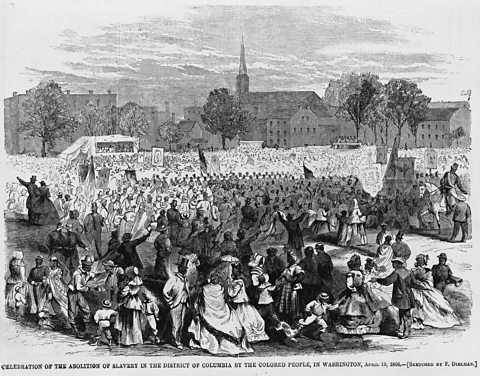Introduction of black rights

Wood engraving showing people celebrating the abolition of slavery in Washington, D.C., April 19, 1866. Sketched by F. Dielman.
Although slavery was declared illegal in 1863, it existed until the end of the Civil War in 1865. The idea of white supremacy The racist belief that white people are superior to people of other races. remained strong in the Southern States. The North may have won the Civil War and outlawed slavery but racist views were deeply embedded in the South.
Changes were made to the American ConstitutionThe supreme law of the United States, first signed in 1787. to try and correct this and create rights for former slaves:
- Civil Rights Act 1866 - All former slaves were to be citizens of the US and to have the same rights as white people.
- Reconstruction Act 1867 - The Southern States were divided into military districts under the control of army generals. Elections were to be held under army supervision and former slaves were allowed to vote.
- 14th Amendment 1868 - No state shall make any law which shall reduce the rights of citizens of the United States.
- 15th Amendment 1870 - The right of the American citizens to vote shall not be denied because of race or colour. These appeared to give black people equal rights to white people.